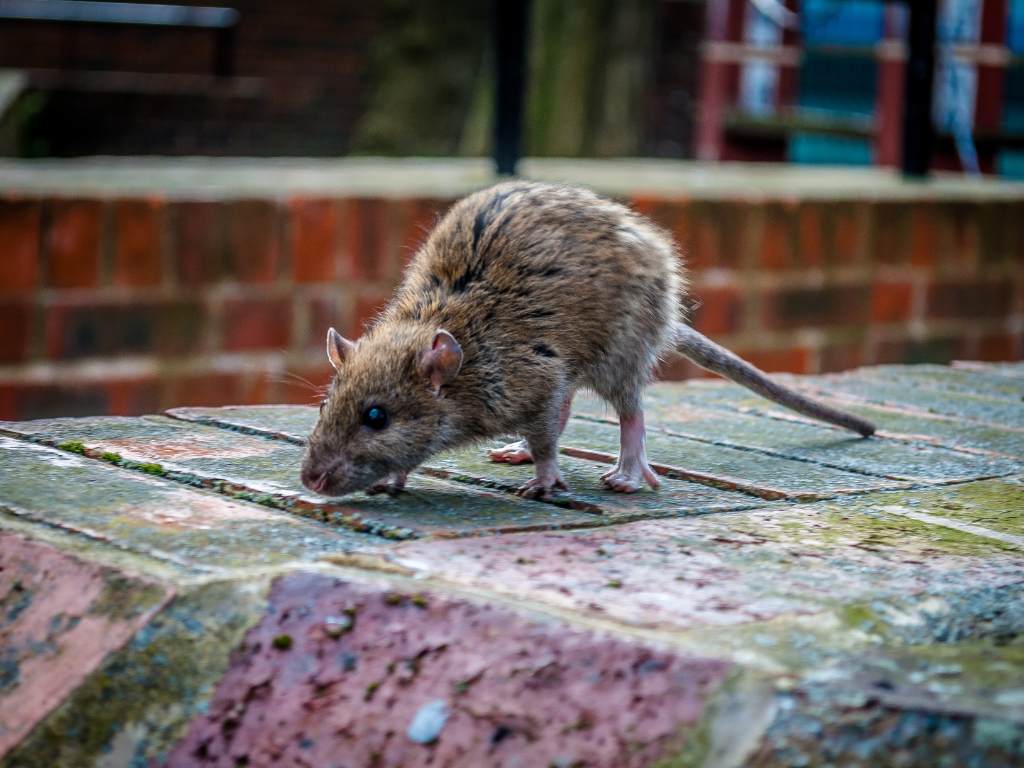Are Rats Dangerous

When it comes to wildlife in our homes or gardens, rats are among the least welcome. These cunning creatures have a reputation that precedes them, often associated with filth and disease. But are rats dangerous? This is a question many homeowners find themselves asking when they come across these uninvited guests. The short answer is yes, but the reasons behind this affirmation are more complex than you might think.
Rats have adapted extraordinarily well to living alongside humans. They can survive in various environments, from the dense undergrowth of rural areas to the hidden corners of urban dwellings. This adaptability and rapid breeding rate make them a persistent problem once they’ve established themselves in a new area.
The danger rats pose goes beyond simply property damage. While they are indeed notorious for gnawing on structures and wiring, potentially causing fires, their real threat lies in their potential as carriers of various diseases.
Are Rats Dangerous To Humans & Pets
Yes, rats can pose a health risk to humans and pets. This is primarily due to their status as vectors for various pathogens. Rats can transport these pathogens in their fur, faeces, urine, and even the parasites they host. When they invade our homes, they inevitably bring these potential disease vectors. It’s not just direct contact with a rat that can pose a threat; simply coming into contact with their droppings or urine or inhaling dust contaminated with these substances can lead to infection.
Pets are also at risk from rats. Dogs and cats may suffer injuries if they try to catch and kill rats. Furthermore, rats can pass on various parasites and diseases to pets. For instance, rats are known carriers of ticks and fleas, which can quickly infest your pets and cause discomfort.
That being said, it’s crucial not to let fear take over. The key is preventing a rat infestation before it starts and taking swift action if one is detected. This can help reduce the potential risks to you and your pets substantially.
Diseases That Rats Carry
Rats, particularly the common species like the Brown Rat (Rattus norvegicus) and the Black Rat (Rattus rattus), are known to carry several diseases that can be transmitted to humans and animals. Some of the most notable diseases include:
- Hantavirus Pulmonary Syndrome (HPS): This is a severe respiratory disease in humans caused by Hantavirus infection, which certain rodents carry.
- Leptospirosis: Also known as Weil’s disease, this is a bacterial infection that can lead to severe kidney damage, liver failure, and meningitis in humans.
- Rat-Bite Fever (RBF): This is a potentially fatal infectious disease that can be transmitted to humans through the bite or scratch of an infected rat.
- Salmonellosis: Rats can carry Salmonella bacteria in their intestines, contaminating food and water sources and causing human food poisoning.
- Plague: Though less common today, rats were a potential vector for the Bubonic Plague, also known as the “Black Death,” in the Middle Ages.
- Toxoplasmosis: This parasitic disease can be transmitted to humans and animals through contact with rat faeces.
- Lymphocytic Chorio-meningitis (LCM): This is a viral infectious disease that can be transmitted to humans through exposure to fresh urine, droppings, saliva, or nesting materials from infected rats.
Remember, while these diseases can be severe or even fatal, not every rat carries them, and infection is not guaranteed upon contact. Good hygiene, rat control measures, and early intervention can significantly reduce the risk of transmission.
Limit The Risks Posed By Rats
Being vigilant and spotting the signs of a rat infestation early is essential. The presence of rat droppings, unusual smells, grease marks on walls and floors, and evidence of gnawing are common signs that you have a rat problem. Swift identification can mitigate the extent of damage and the potential spread of diseases.
A professional rat control service can assist should you have an infestation. These experts are trained to eliminate rat infestations safely and efficiently. They also offer advice on preventive measures, helping you maintain a rat-free environment in the future. Their services not only save your property from damage but also safeguard your family’s health.
How To Protect Yourself From Rats
Maintaining a safe and secure environment requires vigilance and proactive measures to prevent a rat infestation. One of the fundamental steps is to ensure the cleanliness of your surroundings. Regularly clean your house, particularly the kitchen, where food particles might be left unnoticed. Outdoor areas, such as gardens or yards, should also be kept tidy and free from piles of wood or debris that might offer shelter to rats.
The exclusion method is another effective strategy for rat control. Seal any potential entry points with sturdy materials to prevent rats from entering your home. Check for cracks or holes in walls, floors, and roofs, and remember that rats can squeeze through openings as small as half an inch.
Proper waste management is crucial in deterring rats, as they are attracted to areas with accessible food sources. Ensure your bins are tightly sealed, and avoid leaving food out. Compost heaps should be secured.
In case you already have a rat infestation, seeking professional help is recommended. Pest control services use various methods to eliminate rats, from humane traps to rodenticides. These experts can also guide on preventing future infestations.
Finally, practice careful disposal of rat carcasses or droppings to prevent the spread of diseases. Always wear gloves and use a plastic bag to pick up dead rats or droppings. Seal the bag tightly before disposing of it in a secure bin. Any area that has come into contact with rats should be disinfected thoroughly.
